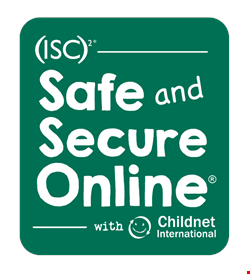In Parts 1 & 2 Peter Berlich gave an overview of the (ISC)2 Safe and Secure Online program and interviewed director Julie Peeler. Here he profiles the volunteer’s role
Jean Marcel Häberli is a volunteer for the (ISC)2 Safe and Secure Online program in Switzerland and an active member of the (ISC)2 Chapter Switzerland.
He is an active member of his local school board, and is in touch with authorities and initiatives in support of the school. For him it’s obvious that, as good as they may be, schools cannot maintain all the necessary expertise in the area of online security. In order to explain a subject well one needs to know it well, and this is where Häberli believes he can help. In fact, he considers it his social responsibility.
The Volunteer: Social Responsibility
“In all areas of life, whether professionally or in private life, it’s standard practice that people help one another in whatever they do best,” he explains. “The strength of the security professional is online security; dealing with online threats is second nature. This is something (ISC)2 members should consider as a matter of course.”
He continues: “It’s not just a problem for schools, but also for parents. As a father I faced the same questions at home that the program works to answer. The strength of security is always a question of the weakest link, and if I can strengthen that link in children then I can strengthen the whole chain, and raise security overall with a small but well-placed effort.”

To make the time for schools, Häberli takes time off work if needed, but he can normally work it in around his professional commitments. And, he adds, the work invested into (ISC)2 Safe And Secure Online counts towards continuous professional education (CPE) credits, which he is required to pursue to maintain his professional standing as an (ISC)2 member.
What is obvious to us is not so obvious to many citizens and parents. Learning how easy it is to identify such simple attacks can have a ‘wow’ effect, which Häberli describes as rewarding. He notes that the presentations focus on practical advice and that people are happy when they can take the first step quickly, and feel in control. Early success motivates them to come back for more.
That being said, he also notes that children are well informed, and generally understand what they should and should not do.
“However, they lack experience and understanding of the possible consequences,” he explains. “Uploading pictures to social networks is a prominent example. How would they know how this can haunt them later in life? Then, there’s bullying. In years past, a bully could be expelled from school, and that would mitigate the problem. Online, this is no longer a solution.”
With regards to technical skills, parents today have a better understanding of computers, and know that the internet is increasingly accessible on the gaming consoles, e-book readers, smartphones, even the TV set. Understanding how to manage this is trickier, he says, noting that bans have always been limited in their effectiveness. When children start circumventing them, the consequences can be worse.
“It’s not just a problem for schools, but also for parents. As a father I faced the same questions at home that the program works to answer"
“As with driving a car, children need to learn how to use it safely and deal with the risks, as part of their growing up.”
For Häberli, raising awareness for the Safe and Secure Online program is a top priority. To that end, Swiss volunteers have worked on translations to French and German and would like to develop it for all Swiss languages, including Rumantsch. In support of other European countries the Swiss Chapter is collaborating with neighboring country chapters in Germany and Austria for translations, and hopes to support the efforts of chapters in France and Italy in the future.
Häberli also emphasizes that, to take part, volunteers don’t need to put in a huge amount of time to make a real difference. Volunteers can visit a few local classrooms a year or as many as they have the inclination to. It’s also important to note that volunteers for the Safe and Secure Online program must be certified (ISC)² members.
To learn more, get involved, or support the (ISC)2 Safe and Secure Online program, visit www.isc2cares.org.
